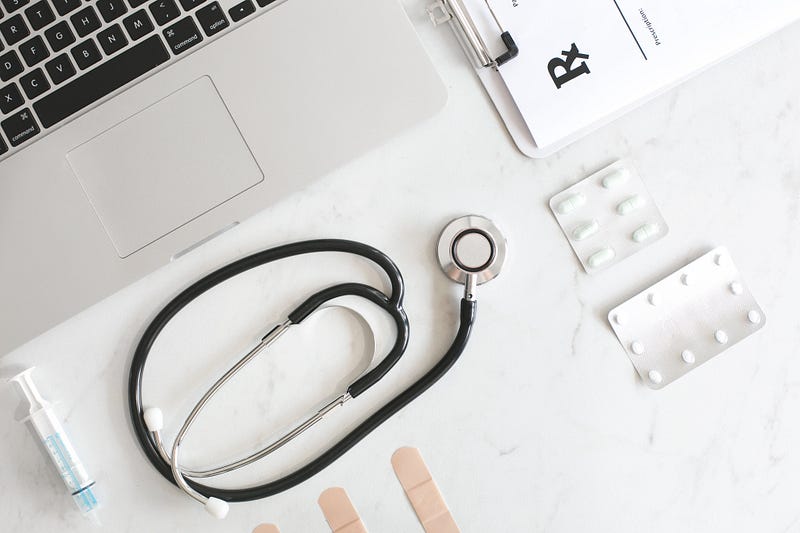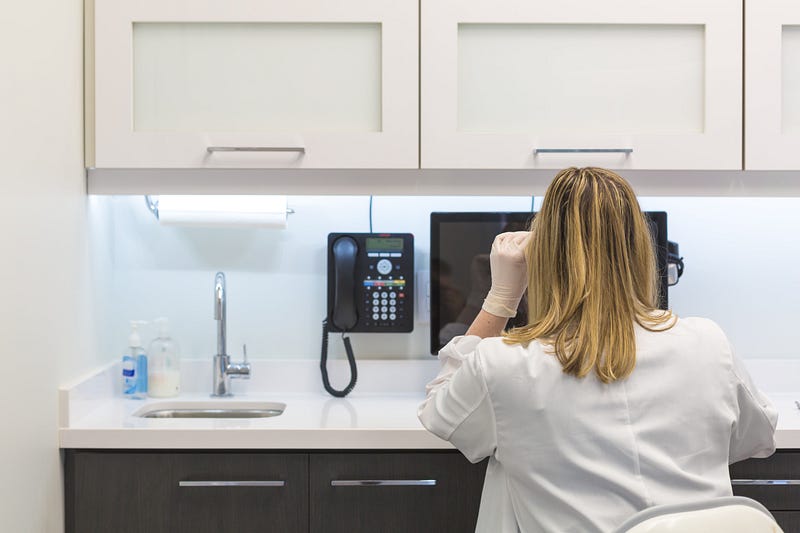The Futility of Faxing Medical Results in Today's Digital Age
Written on
The Inefficiency of Faxing in Modern Medicine
Despite living in an era where technological advancements allow for self-driving cars and 3D-printed organs, many patients still find themselves needing to have their primary care physician (PCP) fax their medical results to specialists.

As a practitioner in a specialized medical facility, I often encounter situations where parents must obtain a referral letter and have their child’s medical results faxed to us before an evaluation for conditions such as an enlarged lymph node, which could potentially indicate cancer.
This raises the question: how is it that, in this modern age, doctors still rely on fax machines to share important medical results?
Understanding Electronic Health Records (EHR)
The answer lies in the complexities of Electronic Health Records (EHR). Consider a scenario where a PCP utilizes an EHR known as Next Generation while the specialist operates on a platform called Epic. Unfortunately, notes entered into Next Generation cannot be transmitted to Epic due to their incompatibility, similar to the lack of communication between world leaders.

Statistics reveal that around 95% of hospitals and 90% of medical practices in the United States employ EHR systems. However, a study highlighted in Fortune indicates that only 30% of the surveyed hospitals—over 3,500 in total—were capable of securely exchanging patient records across different EHR systems.
Interoperability Challenges
The challenge of achieving interoperability among various EHR systems has persisted since their inception. Earlier this year, the U.S. Center for Medicare and Medicaid Services (CMS) made a significant move forward.

The latest CMS proposal includes an option within the Promoting Interoperability (PI) program that enables hospitals to demonstrate their capacity to exchange vital clinical data with other providers. This is feasible when an EHR system can send and receive data through health information exchanges (HIEs). Such systems can facilitate the sharing of essential information, including patient demographics, medical history, medications, and more. Additionally, hospitals can utilize application programming interfaces (APIs) to compile data from various sources into a comprehensive format.
The Future of Medical Data Exchange
While it remains uncertain how quickly hospitals and EHR systems will improve interoperability, it is encouraging that CMS is prioritizing this issue.
In medical training, we learned that patient history is a critical component of effective diagnosis and treatment. Accessing results and information from other healthcare providers would greatly streamline this process.
I eagerly anticipate the day when patients no longer need to worry about having their results faxed to my office, and we can fully embrace the advancements of the 21st century in medicine!

The first video provides insights on how to share your medical records using MyChart, particularly for mobile devices, emphasizing the importance of easy access to health information.
The second video explores the implications of not receiving test results from your doctor and whether this indicates normal results, shedding light on communication issues in healthcare.